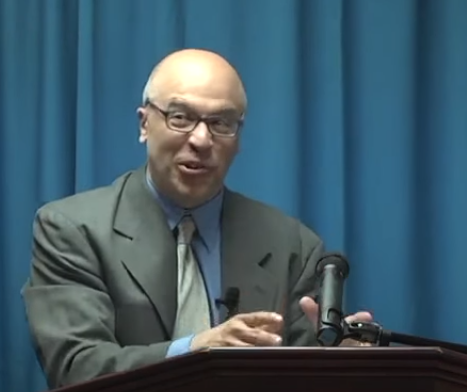Does the Bible explicitly deny that human beings were created with immortal souls?
The COGs teach what some call “soul sleep,” an accurate label but one generally not embraced by COGs themselves. They teach that when we sleep in death, the soul dies along with the body so that we have no conscious interaction with reality. The “spirit in man” experiences absolutely nothing, utter darkness, until the resurrection. They believe both body and soul are mortal.
They commonly cite the following prooftext – with enthusiasm – to support their view that the Christian doctrine about the immortal soul contradicts Sacred Scripture.

(A classic presentation of this prooftext is found in CGI minister Mike James’ sermon: Resurrection From What? The video is cued at the start of his explication, which lasts just over a minute.)
The great apostle, St. Paul, writes of God,
who alone has immortality, who dwells in unapproachable light, whom no one has ever seen or can see. To him be honor and eternal dominion. Amen (1 Timothy 6:16).
In its very first clause, this passage allegedly proves very succinctly that as creatures we cannot have any immortal component in us, that only God has never-ending life.
But is this what Paul means? Are his words air-tight, slam-dunk proof that the “soul sleep” position of Armstrongism is true?
To find out, we can ask a simple question to see whether it violates the law of non-contradiction: Were angels created immortal?
To be consistent, if this verse rules out the possibility that man has an immortal soul – because God “alone has immortality” – then it must also rule out the possibility that angels will live forever, because God “alone has immortality.”
But the answer to our question is yes. Angels are creatures – they’re not God – yet angels are immortal. They don’t come with an expiration date. (I’m sure there are some COG teachers on the fringe who believe angels pass away, but I don’t know any.) Does anyone believe the powerful angelic spirits in heaven (or hell) are subject to death or annihilation?
Even the devil won’t perish from existence. The book of Revelation portrays his fate as one who “will be tormented day and night forever and ever” (Revelation 20:10).
If angels were indeed given the gift of immortality, then clearly we cannot take 1 Timothy 6:16 to mean only God lives on forever. It must mean something else.
What could that be? Obviously it is this: God alone has immortality inherently, in his nature. It’s what makes God God. He alone is necessary existence; all other existing things derive their existence from him.
And since God is the Almighty, the Holy Immortal One, he is able to impart immortality to anything in his creation if he chooses to. He has already done this in the angelic realm; with that precedent, it’s not out of the question that he could have done this with mankind, made in his image.
It should be clear that these two ideas are not mutually exclusive – that (1) God alone has immortality within himself, and (2) God can choose to impart unending existence to certain of his creatures.
The Christian view is that while man as an organism is indeed mortal, his spiritual component is immortal. When a man’s body becomes a corpse (at death), his soul suffers the loss of its companion (the body), but the soul itself is not destroyed. It’s incomplete without its “soul mate,” but it exists apart from the body nonetheless.
To see how this can be, consider the limited analogy of a water balloon. As it falls from a great height, it is a full-fledged “living” water balloon. But when it bursts upon contact with the ground, it is “dead” – that is, it is no longer a water balloon. The water balloon is no more. But that doesn’t mean water doesn’t continue its existence (albeit differently) apart from the destruction of the balloon. The only way to restore or “resurrect” this water balloon from the dead would be to reunite the water with the reconstituted bits of rubber material.
(This analogy is limited because we should not crudely or simplistically think of the body as just a container that holds captive a soul, like a balloon holding water. Body and soul are united much more profoundly. Catholics have always taught that our ultimate reward is not merely to escape the body – a pagan concept – but to undergo a bodily resurrection. On this matter of the soul, the biggest beef COG teachers have with our historic Christian view is that we believe the soul, or “spirit in man,” is conscious rather than unconscious during the interim between our death and resurrection. That really bothers them for some reason.)
But this post is not meant to be a full biblical or philosophical treatment of the human soul. The point is that it’s an absurd imposition on the text of 1 Timothy 6:16 to say it proves we can’t have an immortal soul.
We know that if saying God “alone has immortality” means our souls are mortal, then it also means the angels are mortal – which is not the case. And that means 1 Timothy 6:16 is not a slam dunk for the COG position. It’s a brick.